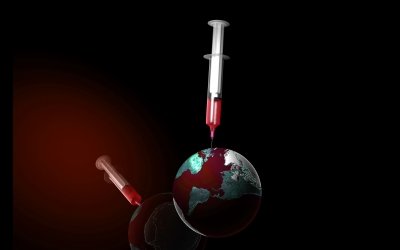
With positive results, Ebola vaccine must be ready by 2015
Singapore: The US NIH announced that it is all set to launch an early-stage clinical trial of an experimental vaccine against Ebola, a deadly virus that has gripped the African nations and the entire world with fear.
Mr Anthony Fauci, director of the National Institute of Allergy and Infectious Diseases (NAID) said that NIH was working on a possible vaccine to prevent people from contracting the deadly virus. Mr Fauci added that he was working with the Food and Drug Administration to fast track the vaccine into a phase 1 clinical trial this fall. This type of trial is the earliest study in humans and aims to make sure that drugs are safe and show some efficacy.
The vaccine developed by NAID has no Ebola infectious material, instead, it is a chimpanzee adenovirus vector vaccine containing an insert of two Ebola genes. Adenovirus vectors are attractive delivery models for vaccine candidates because the virus can be easy manipulated.
The NAID said the vaccine has recently shown promise in a primate model. The potential experimental vaccine works by entering a cell and delivering the new genetic material, which in turn elicits an immune response in the body.
Results from the study should be available by January, Mr Fauci said. The vaccine shall be administered to healthcare workers in Africa, once the toxicity and efficacy tests of the vaccine are completed.
Though there is no specific cure for Ebola, scientists across the globe are hunting for vaccines that can prevent the disease. Mr Fauci added that this was the only positive outcome of the outbreak as the neglected disease received the attention it needed from vaccine and drug researchers.
Mr Thomas Geisbert, a professor at the University of Texas Medical Branch in Galveston, said "For years, pharmaceutical companies have seen little potential for profit in Ebola, because outbreaks are unpredictable and typically small."
Mr Geisbert added that many mandates are now looking for a vaccine to protect their healthcare workers mainly, who deal with Ebola cases. Mr Geisbert's lab received a five-year, $26 million grant to research three of the most promising treatments for Ebola. These included a man-made antibody treatment; a promising Canadian drug from Tekmira Pharmaceuticals shown to protect monkeys from Ebola; and a vaccine that can be used both to prevent infection and also treat it.
Mr Geisbert further said, "Quarantining large populations in a situation like this in Africa is very tough. Vaccines can only be promising solution to prevent such occurrences in future."




